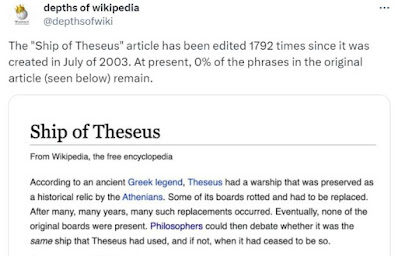Oh what a brouhaha there is about the lack of love Barbie has received in terms of nominations for the upcoming Oscars. (In short, it got a nod in the Best Picture category, but its female director and female star were less happy. Ryan Gosling, nominated for Best Supporting Actor, spoke up for his spurned sisters but not to the extent of throwing his own chance away.)
For the record, I enjoyed the movie, especially its design (definitely one that has to be seen on the big screen) although it probably wouldn’t be in any of my best-of lists. Gerwig and Robbie are talented people but they’ve each done better things (Lady Bird and I, Tonya). That’s not what this is about, though, is it? Barbie, beneath the pink gleam, is a satire of sexism and patriarchy and masculinist assumptions and, so the logic goes, to deprive it of recognition is to condone all those bad things.
Except that it really isn’t, is it? Films that are on the side of the angels aren’t inherently great films and yet the Oscar voters have long had a tendency to reward movies on the basis of their social values alone. The nadir of this came at the 78th awards, when the Best Picture gong went to Crash, a movie at once incoherent and simplistic, the script of which is pretty much the song ‘Everyone’s a Little Bit Racist’ stretched over two hours. To add to the fun, it edged out Brokeback Mountain, so even as the Academy patted itself on the back for acknowledging that Racism Is A Bad Thing, it was panicking in case anyone might think it considered homophobia not to be equally reprehensible. Barbie’s relatively slim pickings may be a sign that Hollywood is finally shaking its way out of such ethical quandaries.
Society as a whole isn’t there yet. Maybe the problem is that at the same time as we have become more confident, even to the point of sanctimony, in our moral and political opinions, we feel less able to make aesthetic judgements, to declare that one film (book, song, play, etc) better than another by virtue of imagination, craft and skill rather than just, well, virtue. To argue on purely artistic grounds that X is a better actor or director or composer or balloon sculptor than Y takes us too close to assumptions about class and education that feel too uncomfortable to express. (Incidentally, we are in similar territory when it comes to language. We are encouraged seize on instances of misgendering or outdated racial epithets, but suggesting that the phrase “would of” is in some way incorrect looks plain rude.)
It almost feels as if we’ve slipped back to the Victorian era, when finger-wagging critics dismissed the likes of Wuthering Heights and Tess of the d’Urbervilles, not for any inherent literary faults but because they were morally suspect. The specific criteria have changed (racism and misogyny and homophobia rather than fornication) but the priorities would be familiar to Hardy or the Brontës. We know what’s good, but not what’s good.
PS: My old mucker Clair, who used to hang around these parts as the Urban Woo, deals with the matter in characteristically brisk, no-nonsense fashion in The Independent.
PPS: Reductress, as it tends to, also gets it right:






